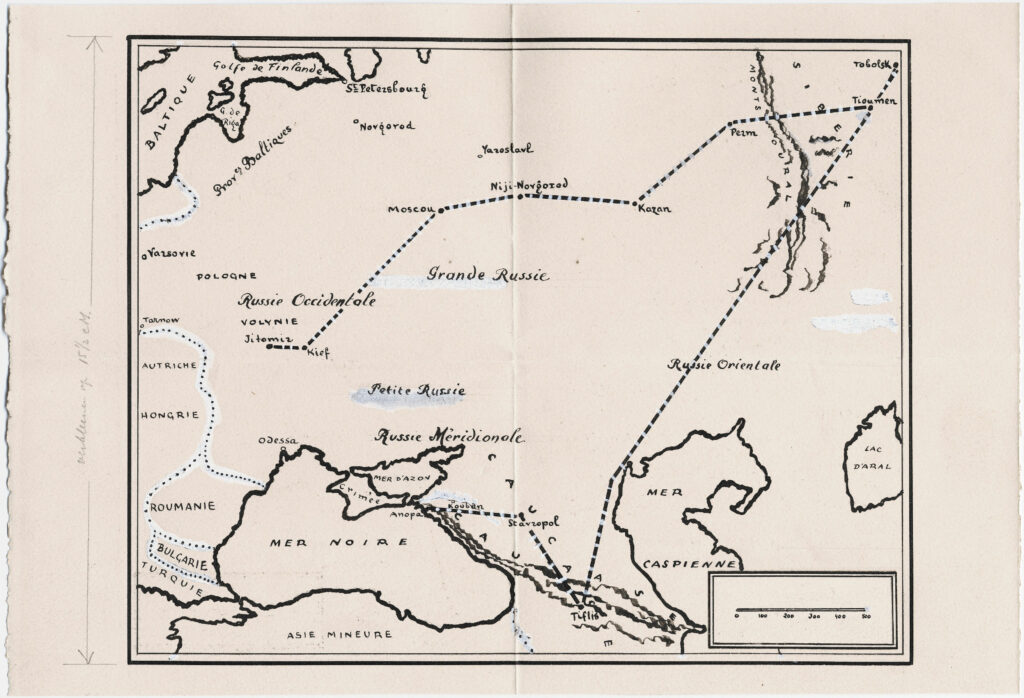
Although the scale and variety of Conrad’s authorship are colossal, no author is perhaps more closely linked to a single text than Conrad is to Heart of Darkness. Critics equate Conrad with its main narrator, the arch-Englishman Marlow. But Conrad is the immigrant in the Western canon. Conrad, whom we are used to reading as an unwilling participant of colonialism, was an exiled subject of Russian colonialism. He was born in 1857 in what is now Ukraine and was previously Poland, as a Russian subject. He joined the French merchant navy at 15; qualified as a British sea captain; changed his name, nationality, and occupation; and became the first modern global author, writing in his third language (after Polish and French). In his fifties, living in the picturesque Kent countryside, he returned to the memories of his unsettling upbringing and wrote an unflinching novel on Russian despotism: Under Western Eyes (1911): “without doubt . . . the most deeply meditated novel that came from under my pen” (CL5 695). He originally planned to subtitle the text we now know as Under Western Eyes “A story of the present time” (CL4 62), which is eerily prescient. I argue that the novel offers an audacious voice of exile and dislocation, which is increasingly relevant in the wake of warring Russian despotism.
The novel starts with a rebel bombing on a menacing agent of autocracy, de P— . His name is censored. The event is modeled on the 1904 assassination of von Plehve, Imperial Russia’s Minister of the Interior. The instigator of the bombing, Haldin, seeks refuge in the room of his acquaintance, Razumov. Razumov, a third-year student of philosophy at St Petersburg University, is “a man of studious and retired habits” (5), preferring the peaceful light of his reading lamp to the heated revolutionary debates among his peers. Under the logic of autocracy, Razumov is no longer a promising student but a subversive, guilty by association. Razumov betrays Haldin’s unwanted trust and reports him to the authorities, who, in turn, recruit Razumov as an undercover agent.
The novel resembles Crime and Punishment in style and theme. Conrad, likely speaking as an aggrieved Russian subject, feigned he had hardly read any Dostoevsky. Yet Razumov, the protagonist, is Conrad’s Raskolnikov. Razumov is also a self-portrait. He resembles Conrad in his quiet disposition, introversion, and uneasy relationship to his native land and law.
Conrad internalized the profound ambivalence of its main protagonist. Conrad was the victim of Russian autocracy. He was also a member of the Polish nobility, the szlachta. He suffered from Russian despotism, but he also suffered from his father’s futile oppositions. Conrad was instinctively opposed to the political conditions that had shaped his life. Yet like Razumov, he was raised an orphan, and his most stable familial ties were to the soil and the nation. Razumov embodies these contradictions; he is a contrarian outsider who lives in moral solitude, and becomes an unwilling Russian spy who identifies himself with Russia: “I am it!” (163). Conrad’s own views on Russian Tsardom are anything but sympathetic. In an essay he labels it “a fantasy of madman’s brain” and a “figure out of a nightmare seated upon a monument of fear and oppression” (NLL 77).
Conrad’s characteristic writing style is to engage in a tug-of-war of clashing opinions. Under Western Eyes contrasts tsarist autocracy and arbitrary power with fanatic idealism and professional revolutionists. The novel is a tour-de-force of intermingling indirect voices, each clamoring for a distinct and persuasive perspective. A searching philosophical novel, it seeks “to capture the very soul of things Russian” (CL4 8) in the long short story form. Under Western Eyes renders the undoing of its protagonist and “the moral conditions ruling over a large portion of this earth’s surface” (58), in a manner that reflects our time as much as Conrad’s.

Latest Comments
Have your say!